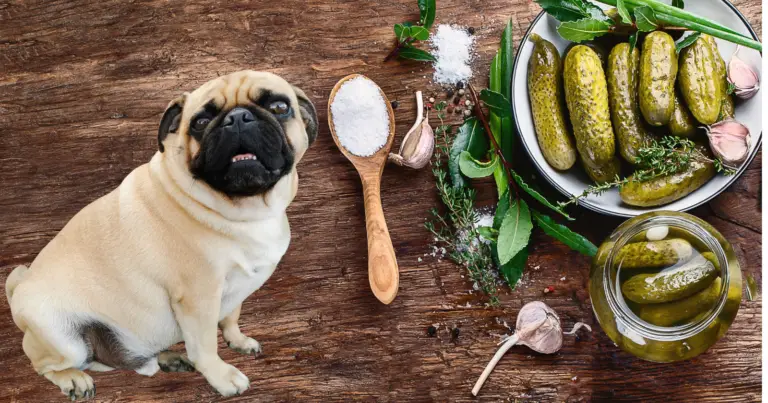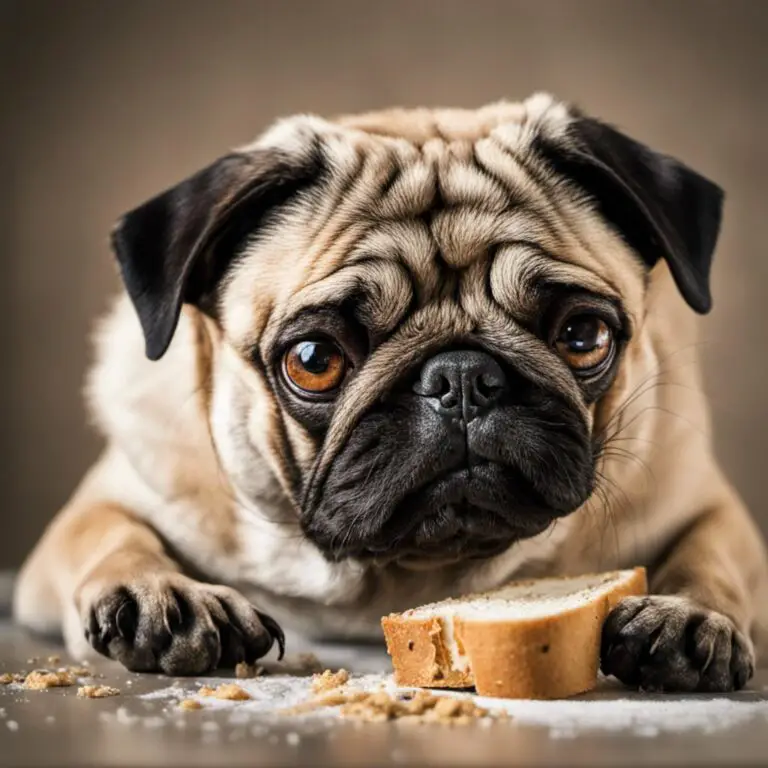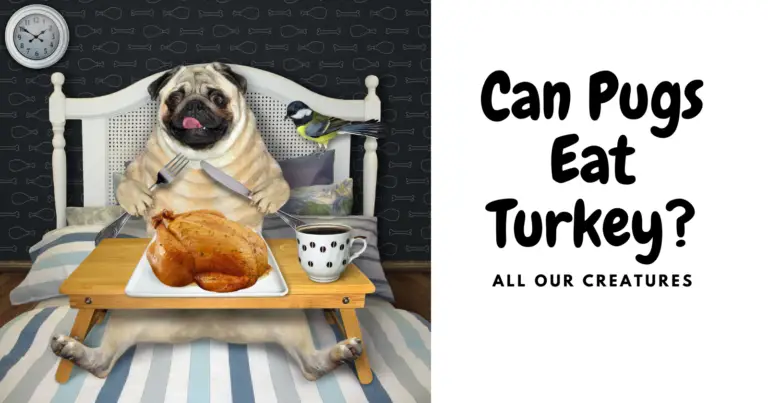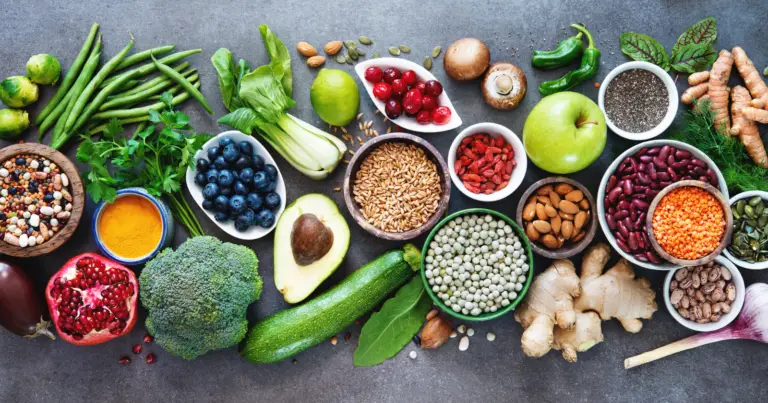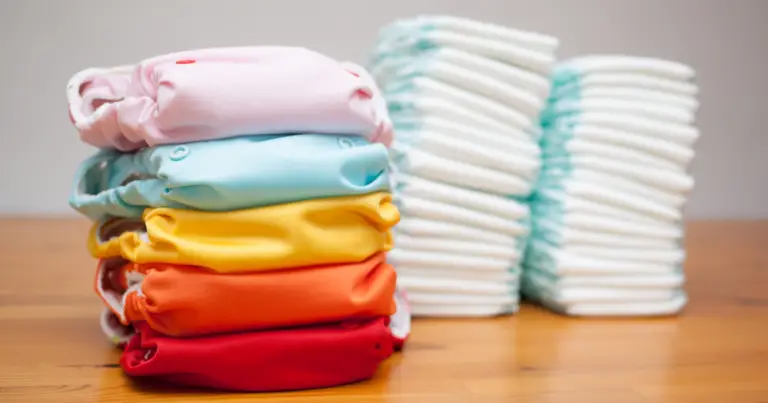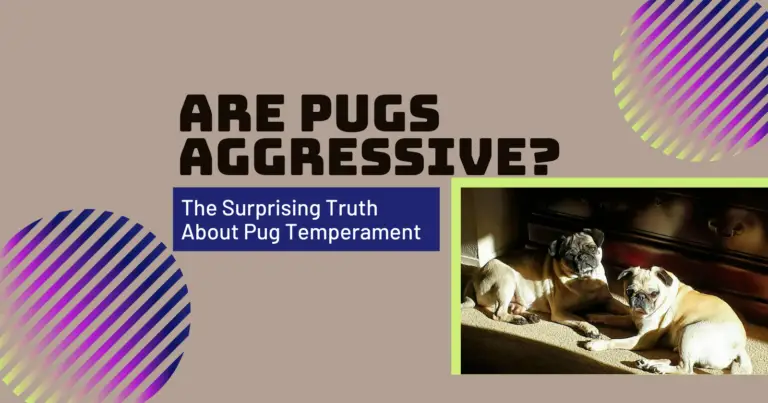Can Pugs Eat Pomegranate? A Succinct Guide for Pet Owners
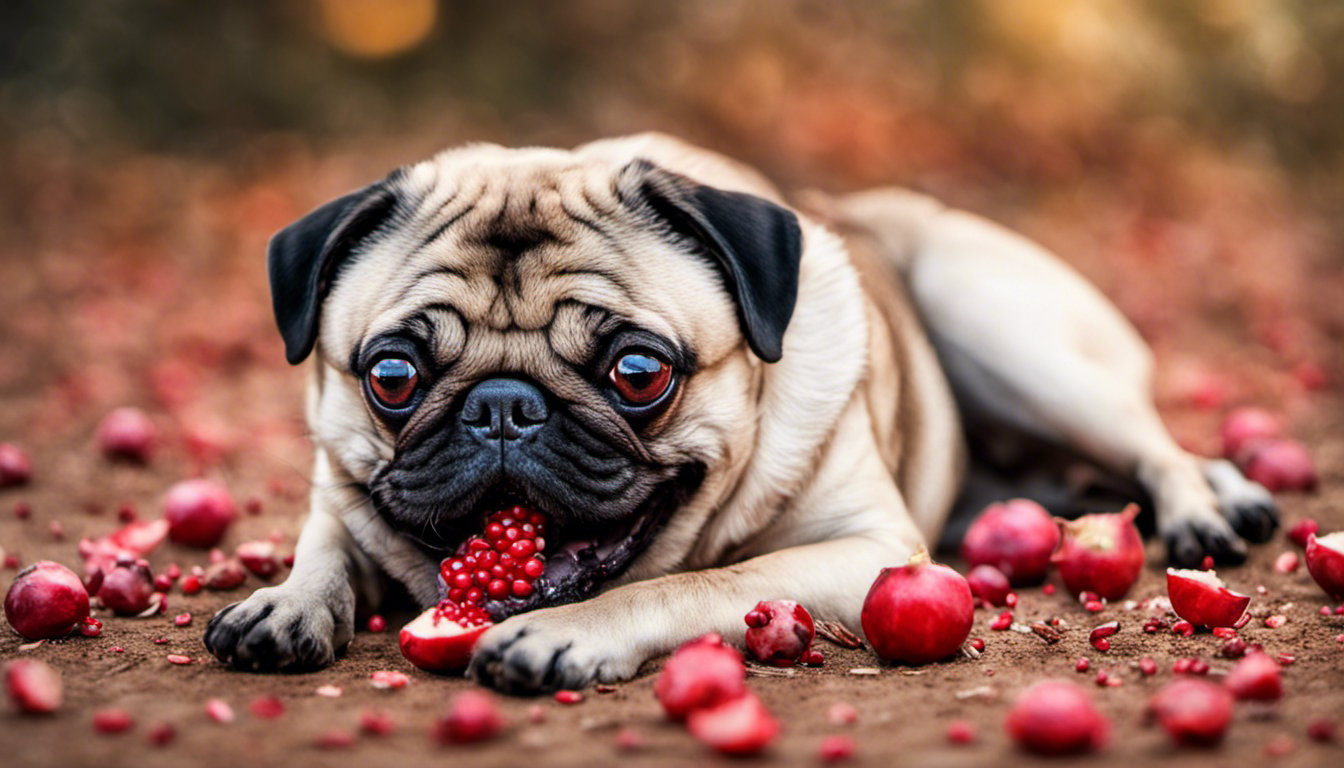
As a pug owner, you might be curious about Can Pugs Eat Pomegranate. Pomegranates are a popular fruit known for their antioxidant properties, potassium, and fiber content. Regarding your pug’s diet, it’s essential to know whether pomegranate is a safe and healthy option for them.
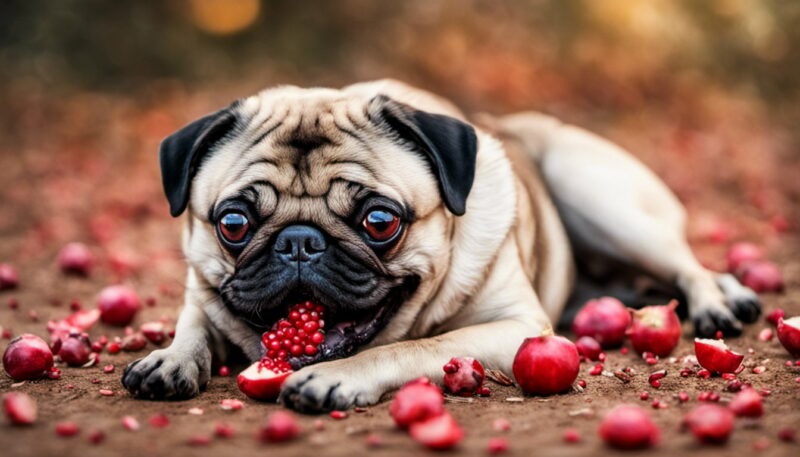
The good news is that pugs can safely eat pomegranate, but moderation is key. While the fruit itself is not toxic to dogs, overindulging can lead to stomach upset in your pug. Additionally, removing the seeds before feeding pomegranate to your pet is crucial, as they can be harmful.
Contents
Table of Contents
The Pomegranate Fruit and Dogs
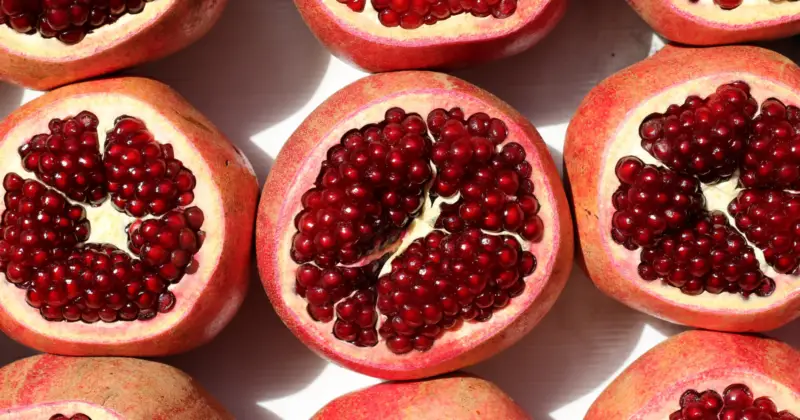
When considering fruits for your canine companion, you might wonder whether pomegranates are a safe and healthy choice. Pomegranates are known for their numerous health benefits, primarily due to their high antioxidant content. However, while they may be suitable for humans, it’s essential to understand how they may affect your dogs, especially pugs.
Before feeding any pomegranate to your pug, it’s important to remember that the seeds can cause gastrointestinal issues in dogs source. While the fleshy arils surrounding the seeds can be consumed safely, separating them from the seeds might prove to be more trouble than it’s worth.
Get The Free Food Eating Guide That Keeps My Pug Happy and Playful Even at 13 Years Old
100% Beginner Friendly & Lists Real Foods Your Pug Can Actually Eat!

Pomegranate seeds can upset a dog’s stomach, so you should exercise caution when offering them to your pug source. If you decide to give your pug a small portion of pomegranate aril, monitor them closely for any signs of gastrointestinal distress, such as vomiting or diarrhea. Remember that moderation is key, and it’s best to consult your veterinarian before including new foods in your dog’s diet.
As a responsible pet owner, it’s essential to prioritize your dog’s health. While pomegranates may offer some health benefits to humans, they may not be the best choice for your pug. Remember that dogs have different nutritional needs than humans, and it’s essential to provide them with a balanced and appropriate diet. Always consult with your veterinarian for guidance on safely incorporating new fruits or other foods into your dog’s meals.
Benefits of Pomegranate
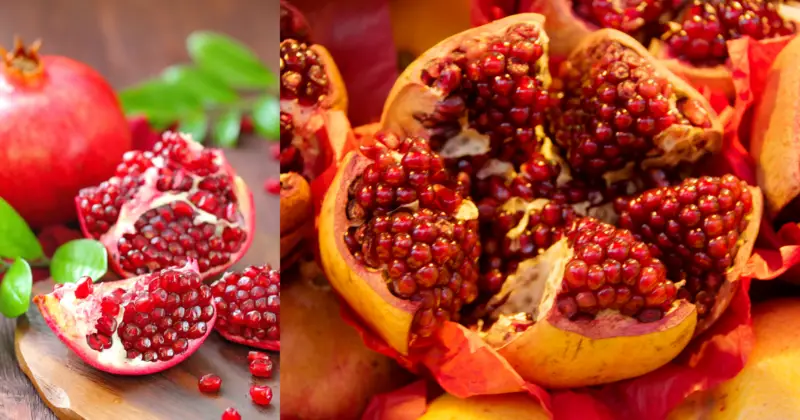
Pomegranates offer various health benefits due to their rich nutritional content. In this section, we will explore the antioxidants in pomegranates and the overall nutritional value of this fruit.
Antioxidants in Pomegranates
Pomegranates are well-known for their high antioxidant content. Antioxidants are crucial for your health as they help protect your cells from damage caused by free radicals. One benefit of consuming pomegranates is that they are rich in antioxidants, which provide your body with numerous health advantages. You can support your overall health and well-being by including pomegranates in your diet.
Nutritional Value of Pomegranate
In addition to their antioxidant content, pomegranates have an impressive nutritional profile. They are a good source of fiber, offering a healthy dose to support your digestive health. Pomegranates are also high in vitamin C, which strengthens your immune system and helps with tissue repair.
Furthermore, pomegranates contain significant amounts of potassium, a vital mineral needed for proper nerve function and muscle contraction. This fruit also provides a variety of other essential minerals, supporting various bodily functions and contributing to your overall health.
Remember to incorporate pomegranates into your diet to take advantage of their incredible health benefits. Their substantial nutritional content aligns well with a balanced, healthy lifestyle.
Risks to Pugs

Possible Toxic Parts
While pomegranates are not toxic to dogs, certain parts of the fruit can be problematic. The pomegranate’s seeds, skin, stem, and peel might contain tannins, which can cause digestive issues in your pug. Consuming these parts may lead to vomiting, diarrhea, and abdominal pain.
Removing the seeds, skin, stem, and peel before offering your pug any pomegranate to minimize the risk of any unwanted reactions is crucial. Also, be aware that xylitol, a common artificial sweetener found in some processed foods, is poisonous to dogs but not present in raw pomegranates.
Risk of Overeating
Pomegranates pack many health benefits, so it is understandable if you want to share them with your pug. However, moderation is key. Overeating can result in stomach upset and digestive issues in pugs, even if the toxic parts have been removed.
Limit the amount of pomegranate your dog consumes to avoid digestive tract blockage or obstruction. Too much of any fruit can lead to unintended health consequences, so ensure that you are not overindulging your pug’s taste for pomegranates.
Remember, it’s always best to consult with your veterinarian before introducing a new food to your pug’s diet. By understanding the potential risks and taking necessary precautions, you can confidently provide your pug with a safe, tasty, and healthy treat.
Digestive Issues in Pugs
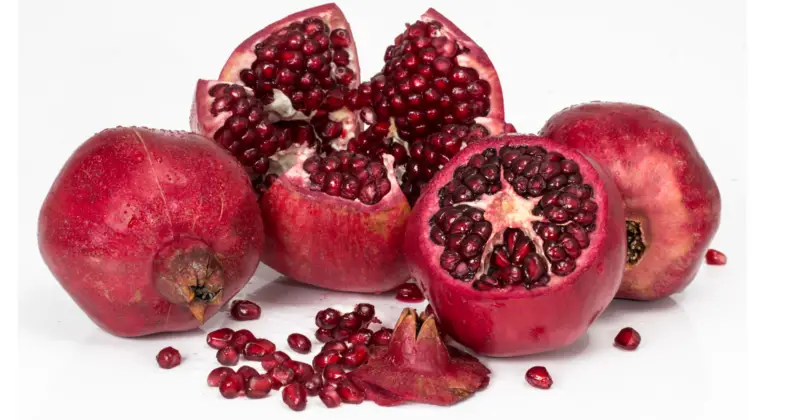
Diarrhea in Pugs
Pugs, like all dogs, can experience digestive issues, including diarrhea. To maintain their digestive health, it is essential to give them a well-balanced diet and ensure they do not ingest harmful or toxic substances. If your pug experiences diarrhea, you may need to adjust their diet or seek veterinary advice.
Stomach Upset and Pomegranate
Pomegranate seeds contain a high level of acidity that can be tough on your dog’s digestive system, which differs from humans. Consumption of these seeds can cause stomach upset in your beloved pug. Every dog is different and may react differently to eating pomegranate seeds source. It is crucial to observe your pug after consuming pomegranate and seek veterinary care if it shows signs of discomfort or illness.
Gastrointestinal Issues Caused by Pomegranates
Eating pomegranate peels or seeds can cause digestive problems like vomiting, diarrhea, and abdominal pain in pugs, as stated by Dr. Chyrle Bonk, a veterinarian and consultant with PetKeen.com source. If your pug ingested a significant amount of pomegranate seeds or peels, it is vital to monitor them closely.
One strategy to address gastrointestinal issues in pugs is fasting your pug for 12-24 hours. This allows their gastrointestinal tract to heal and reset the source. However, it is recommended to consult your veterinarian before trying any home remedies for digestive problems.
In conclusion, giving pugs pomegranate seeds or peels is not advisable since it can cause digestive issues. Take precautions and monitor your pug if they accidentally consumed this fruit, and always consult a veterinarian if you have concerns about their digestive health.
Can Pugs Eat Pomegranate? Watch this
Proper Feeding Guideline
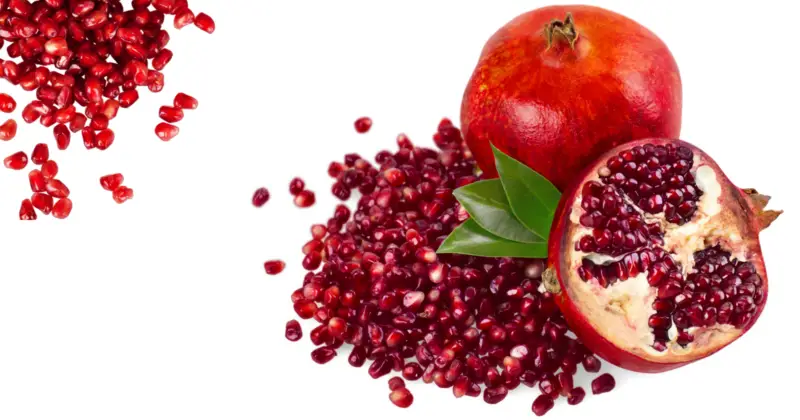
When to Contact the Vet
Although pomegranate is not toxic to dogs, it is essential to be cautious when introducing new treats to your pet’s diet. If you notice any unusual symptoms, such as vomiting, diarrhea, or lethargy after feeding your pug pomegranate, it is best to contact your veterinarian immediately. Always consult your vet before incorporating new foods into your dog’s diet to ensure their safety and well-being.
How Much Pomegranate to Feed
Pomegranate can be given as a treat in moderation. However, removing the seeds first is crucial, as they can cause stomach upset in pugs due to their high acid content. You can offer your pug small amounts of pomegranate, but do not overdo it, as it should not become a significant part of their diet.
Remember that it is essential to balance your pug’s regular diet with nutritious meals to maintain their overall health. Treats like pomegranate can be a tasty addition, but they should never replace a well-rounded, nutritious diet specifically tailored to your pug’s needs. Stick to the feeding guidelines provided by your veterinarian or the pet food manufacturer for the best results.
Alternatives to Pomegranate

Safe Fruits for Pugs
While pomegranates may not be the best option for your pug, they can enjoy plenty of other safe fruits. For a sweet treat, try offering small amounts of apples (without seeds), bananas, blueberries, or strawberries. These fruits are delicious and rich in vitamins and minerals that can benefit your pug’s health. Additionally, cantaloupe and watermelon can provide a hydrating snack, particularly during warmer months. Just remember to remove any seeds and monitor portion sizes to avoid overfeeding.
Healthy Dog Treats
In addition to fruits, you may consider offering your pug healthy dog treats to keep their diet balanced and promote good health. Vegetables like carrots and broccoli can provide a satisfying crunch while boosting your dog’s immune system and offering necessary nutrients. Alternatively, consider lean meats like chicken or turkey as a high-protein snack. Ensure that meat treats are cooked thoroughly and boneless to avoid potential health issues.
Nutritional Supplements for Dogs
Lastly, if you’re concerned about your pug’s overall nutrition or health, plenty of nutritional supplements are available to bolster their diet. Consult with your veterinarian to determine the best options for your pug, and carefully follow the recommended dosages. Supplements can be valuable to your dog’s diet, addressing potential deficiencies and supporting their overall well-being.
In conclusion, while pomegranates may not be the best choice for your pug, plenty of alternative fruits, dog treats, and supplements keep your pet happy and healthy.
Frequently Asked Questions: Can Pugs Eat Pomegranate
Is pomegranate safe for pugs?
Yes, pomegranate is safe for pugs to consume in moderation. Although not toxic, feeding them only the edible part of the fruit, the arils, in small quantities is essential. Prolonged or excessive consumption might lead to gastrointestinal discomfort or other issues.
Can pugs eat pomegranate seeds?
It is best to avoid giving pomegranate seeds to your pug, as they are coarse and acidic. Consuming the seeds can negatively affect your pug’s digestive tract, leading to diarrhea and vomiting. Stick to the arils to give your pet a safer and more enjoyable snack.
Which part of the pomegranate can pugs consume?
Pugs can safely consume the arils of the pomegranate. These are the pink, fleshy parts that surround the seeds. Ensure that you remove the seeds and any other inedible parts before feeding the fruit to your pug. The arils offer a tasty and nutritious treat in small quantities.
Are pomegranate leaves harmful to pugs?
There is limited information available regarding the safety of pomegranate leaves for pugs. To be cautious, avoiding giving your pug any part of the pomegranate plant other than the arils is best. If your pug happens to ingest any leaves, monitor them closely for any signs of distress or illness, and consult a veterinarian if necessary.
What benefits do pugs gain from pomegranate?
Pomegranate arils are high in antioxidants, vitamins, and minerals. These nutrients can support your pug’s overall health by helping reduce inflammation, promoting a healthy immune system, and providing a low-calorie treat option. However, remember to feed your pug only small amounts, as even beneficial foods can still cause issues if consumed in large quantities.
Can pugs develop allergies to pomegranate?
While it’s not impossible for a pug to be allergic to pomegranate, it is quite rare. If you notice any signs of an allergic reaction, such as itching, swelling, or difficulty breathing, stop feeding them the fruit after your pug has consumed pomegranate arils and consult a veterinarian immediately.

